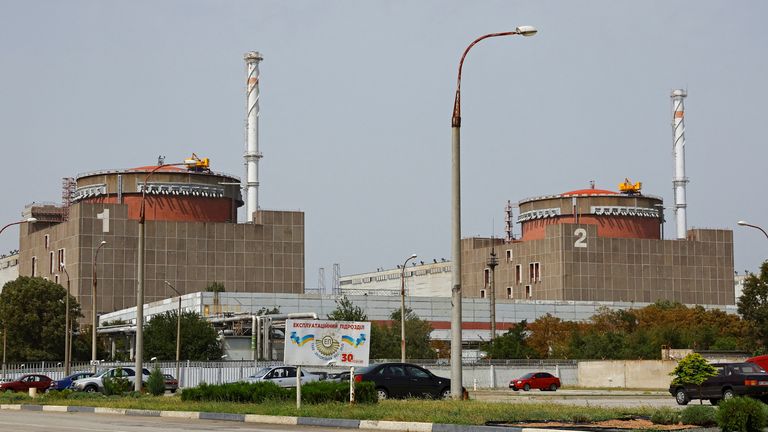Russia is on the back foot in Ukraine. What does Putin do now?
Vladimir Putin has never lost in war before. Not in Chechnya, not in Georgia, not in Syria.

Vladimir Putin has never lost in war before. Not in Chechnya, not in Georgia, not in Syria.
Might Ukraine be different?
Yes, 6,000 square kilometres is just a slither in the considerable territory Russia holds in Ukraine – one fifth of the country.
But Russia is now on the back foot. This was a rout – not a “regrouping” as state media would have its viewers believe.
Poor morale – along an overstretched frontline with weak points Ukraine has clearly managed to identify – can be contagious, and the Kremlin must know it.
So what does Vladimir Putin do?
Don’t expect the Kremlin to say much beyond the usual “all going according to plan” rhetoric, because anything more would be an admission of something rotten in this “special military operation”, namely manpower shortcomings.
Live updates: Ukraine ‘retakes 6,000 square kilometres of territory’
Broader mobilisation
He could decide on broader mobilisation, rather than relying on volunteer contractors who come to realise pretty soon that this horrifically dangerous fight isn’t worth the paycheck.
That may not involve full mobilisation with all the political consequences of bringing in Russia’s young men in their entirety to fight, but could be a more targeted mobilisation of reservists with specific skillsets.
They would nevertheless still need time and training, especially if their military service was way back when, and without a full war declaration they may still have the legal right to refuse or at least defer.
The manpower problem is not an easy one to fix.
Targeting energy networks
Then there are other pressure points Russia can leverage.
Targeting Ukraine’s energy networks – already in play; Zaporizhzhia – one missile strike away from a nuclear disaster; continuing to put the squeeze on Europe through energy, though Ukraine’s recent advances make it more likely that Europe will keep supplying weapons, not less.
Nuclear option
As for the dreaded nuclear option, Russia has to a certain extent prepared the rhetorical groundwork.
Its nuclear doctrine allows for a first-strike nuclear attack only if the stability of the state is at risk, but this “special military operation” is continually described as a way of defending Russia against NATO aggression, amid claims that the end goal of the West is Russia’s annihilation.
So it is not a stretch to use that justification, should Russia decide on a tactical nuclear strike which some of the louder military pundits on state TV are already ruminating on.
Is Vladimir Putin really prepared to go that far, an option which lies firmly outside the Overton window, already stretched to its hinges with his actions in Ukraine?
The story so often told as an insight into his psyche is how as a child, playing in the courtyard of his communal apartment in St Petersburg, he managed to corner a large rat. Rather than cower it lashed out.
But this tale – and its apocryphal conclusions – belies Putin’s ability to adapt, his opportunism, his expertise in all things hybrid.
He may want his legacy to include a return of Kyiv to the Russian fold but to cross the nuclear Rubicon, 77 years after Hiroshima?
It is not impossible but my hunch is that this is still unlikely.
No revolution
These 6,000 square kilometres around Kharkiv (more specifically Izyum and Balakliya) are not Kherson nor are they a battle for Crimea.
That is when things might shift domestically, not just on the battlefield.
For now, febrile chat on Russian TV talk shows does not a revolution make, whatever the wishful thinking of the West.
But these are febrile, dangerous times. Watch this space.



